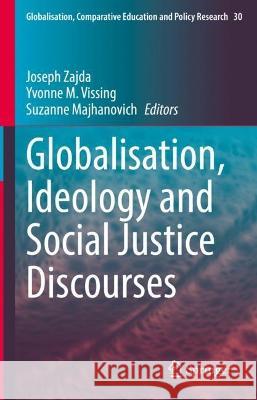Globalisation, Ideology and Social Justice Discourses » książka
topmenu
Globalisation, Ideology and Social Justice Discourses
ISBN-13: 9783030927769 / Angielski / Miękka / 2023
Globalisation, Ideology and Social Justice Discourses
ISBN-13: 9783030927769 / Angielski / Miękka / 2023
cena 523,30
(netto: 498,38 VAT: 5%)
Najniższa cena z 30 dni: 501,19
(netto: 498,38 VAT: 5%)
Najniższa cena z 30 dni: 501,19
Termin realizacji zamówienia:
ok. 22 dni roboczych.
ok. 22 dni roboczych.
Darmowa dostawa!
This book examines dominant discourses in social justice education globally. It presents cutting-edge research on the major global trends in education, social justice and policy research. Using diverse paradigms, ranging from critical theory to discourse analysis, the book examines major social justice and equity education reforms and policy issues in a global culture, with a focus on the ambivalent and problematic relationship between social justice education discourses, ideology and the state. The book discusses democracy, ideology and social justice, which are among the most critical and significant factors defining and contextualising the processes surrounding social justice education reforms globally. It critiques current social justice education practices and policy reforms, illustrating the shifts in the relationship between the state, ideology, and social justice education policy.
Written by authors from diverse backgrounds and regions, this book examines current developments in research concerning social justice education. It enables readers to gain a more holistic understanding of the nexus between social justice education, and dominant ideologies, both locally and globally. It also provides an easily accessible, practical, yet scholarly insights into local and global trends in the field of social justice education. Discourses of Globalization, Ideology and Social Justice, with contributions from key scholars worldwide, should be required reading for a broad spectrum of users, including policy-makers, academics, graduate students, education policy researchers, administrators, and practitioners.











